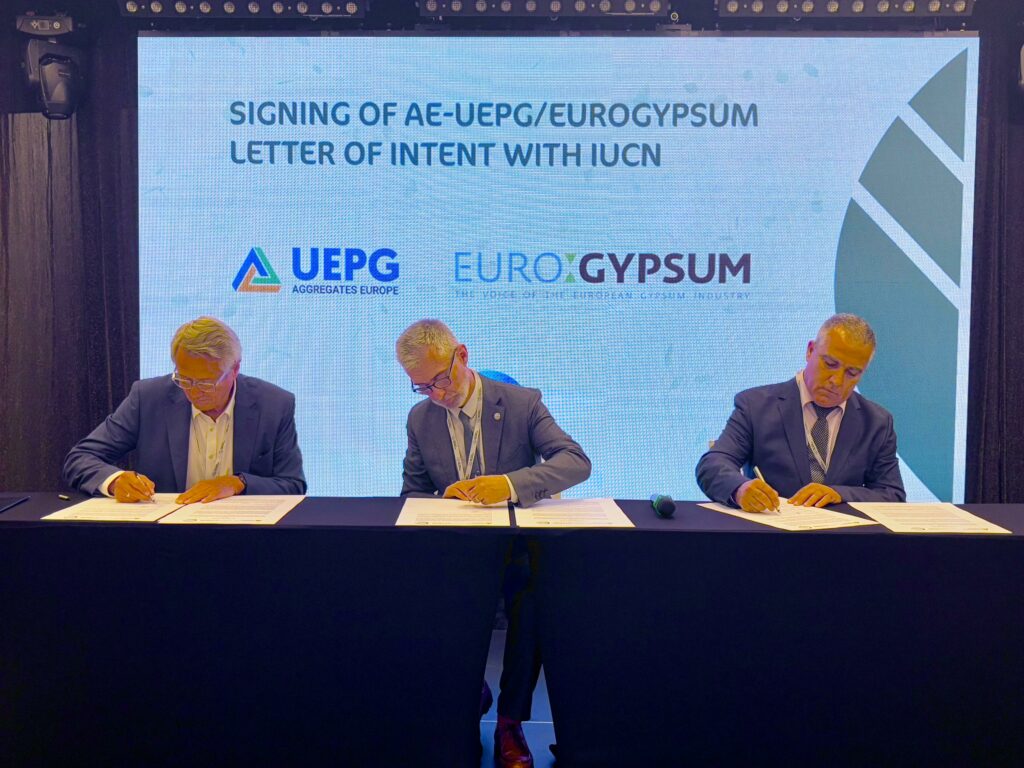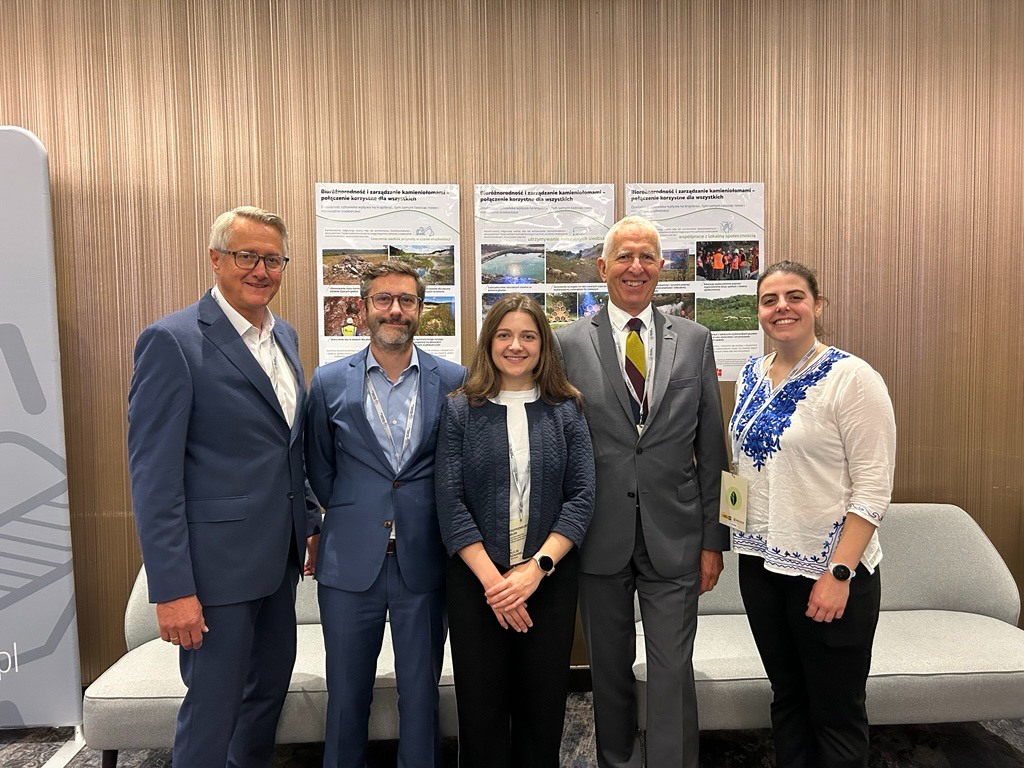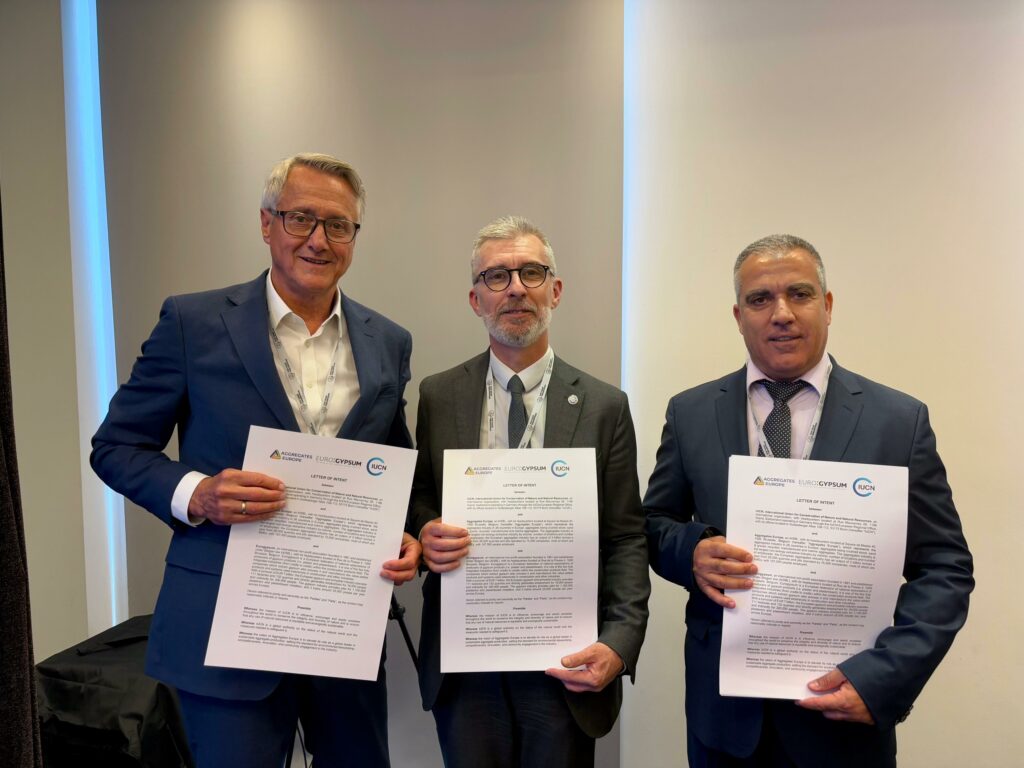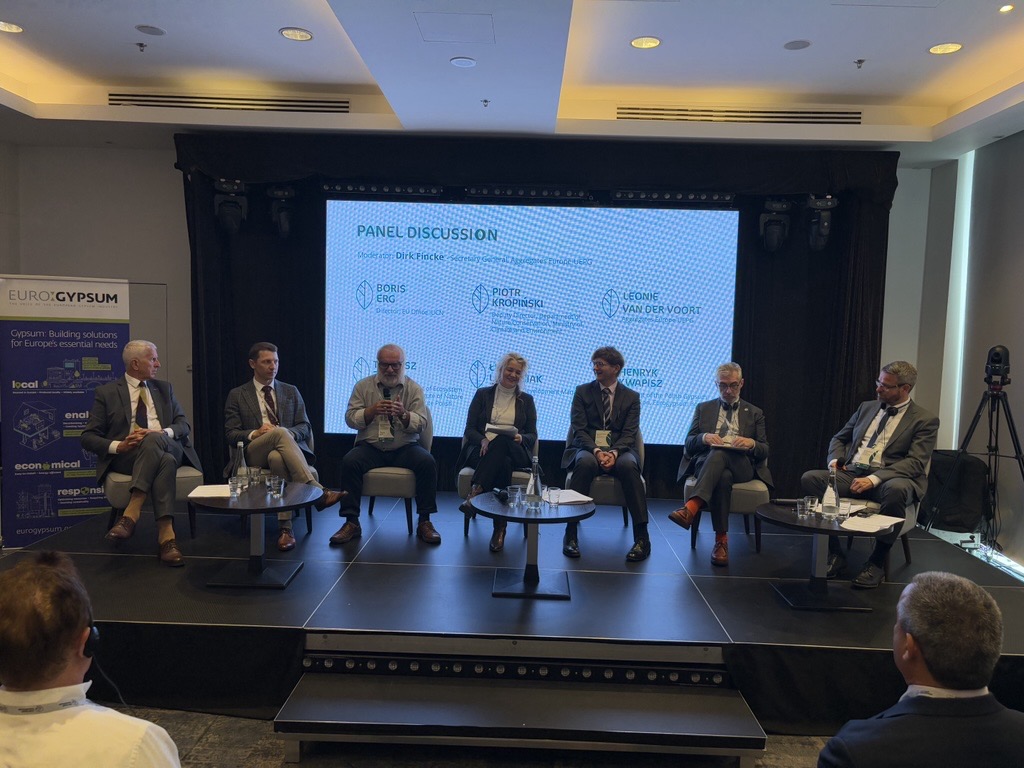IUCN and Europe’s aggregates and gypsum sectors enhance cooperation on nature restoration





On 5 June 2025, industry representatives, environmental organisations, scientists and policymakers convened in Kraków, Poland, to discuss collaborative approaches to nature restoration.
The event, titled “Nature Restoration Regulation: What role for the raw materials industry?”, was organised by the Polish and the European aggregates industry, together with the European gypsum sectoral associations, and held under the patronage of the Polish Presidency of the European Union.
The sustainable development of infrastructure remains a priority for Poland and other European countries. Whether constructing wind turbines for renewable energy, building or renovating housing, or maintaining transport networks that underpin mobility and defence, societies depend on a reliable supply of essential raw materials such as aggregates and gypsum.
“The mineral supply sector operates under strict environmental regulations and is committed to reducing its ecological footprint. In collaboration with biodiversity experts and other stakeholders, our industry undertakes land restoration during and after extraction,” said Antonis Latouros, President of Aggregates Europe – UEPG. “We are ready to support public authorities in implementing the EU Nature Restoration Regulation.”
In this context, the International Union for Conservation of Nature (IUCN) signed a Letter of Intent with Aggregates Europe – UEPG and Eurogypsum to initiate closer cooperation and share technical knowledge on ecosystem restoration.
Signed by Antonis Latouros, Christoph Dorn (President of Eurogypsum), and Boris Erg (Director of the IUCN European Regional Office), the agreement sets out a framework for future joint initiatives aimed at enhancing biodiversity within quarry and mining operations.
“The private sector has a central role in achieving the European Union’s ambitious nature conservation and restoration goals. Aggregates and gypsum industries are uniquely positioned to demonstrate this commitment by practicing high environmental standards and undertaking restoration activities in their field operations,” echoed Boris Erg.
“Sustainable quarry management is part of our sector’s core practices. We welcome IUCN’s scientific input to help us continue improving our stewardship of biodiversity,” added Christoph Dorn.
This collaboration reflects a growing recognition of the need for cross-sector partnerships to meet restoration and conservation targets while ensuring a secure supply of natural resources.
Contact points:
Boris Erg, Director of the European Regional Office – boris.erg@iucn.org
Dirk Fincke, Secretary General of Aggregates Europe – UEPG – secretariat@aggregates-europe.eu
Tristan Suffys, Secretary General of Eurogypsum – t.suffys@eurogypsum.org
About us:
IUCN is a membership Union composed of both government and civil society organisations. It harnesses the experience, resources and reach of its more than 1,400 Member organisations and the input of more than 17,000 experts. IUCN is the global authority on the status of the natural world and the measures needed to safeguard it.
Aggregates Europe – UEPG represents the European Aggregates Industry in Brussels, with Members in 26 countries. It is by far the largest non-energy extractive industry, covering a demand of 3 billion tonnes of aggregates per year, produced on 26,000 sites by 15,000 companies (mostly SMEs), and employing 187,000 people across Europe.
Eurogypsum is a European federation of national associations of producers of gypsum products (i.e. plaster and plasterboard). It is one of the few fully integrated industries (from cradle to cradle) within the construction products field. The companies which mine gypsum also process it and manufacture the value-added products and systems used extensively in construction and other industries.
With a turnover of EUR 7 billion, the European gypsum and anhydrite industry operates some 111 factories and 132 quarries and generates employment directly to 16,000 people and indirectly for 300,000 people. The gypsum industry provides jobs to 1,100,000 plasterers and plasterboard installers. It trains around 25,000 people per year across Europe.